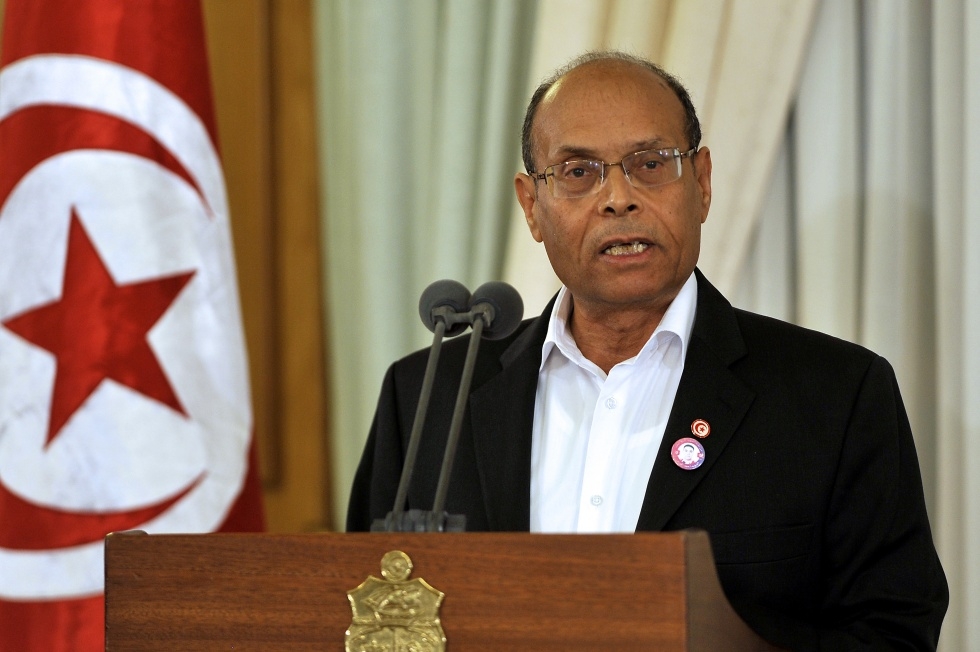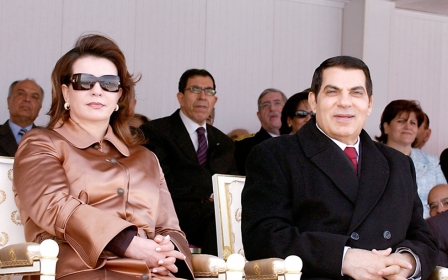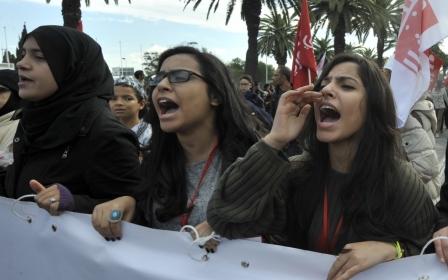Tunisia president cuts own salary by two-thirds

Tunisia's President Moncef Marzouki announced on Friday his decision to voluntarily take a two-thirds pay cut as the government grapples with a financial situation it has described as "critical."
"We are facing a financial and economic crisis. The state must be a model . . . That is why I have decided to lower the legal salary of the president of the republic to a third" of its current level, Marzouki said in a statement.
The Tunisian economy has suffered from the instability that followed the 2011 revolution, which toppled long-time autocrat Zine El Abidine Ben Ali and ignited the Arab Spring.
Presidential spokesman Adnane Mansar had said that Marzouki earned a gross monthly wage of 30,000 Tunisian dinars (around 13,600 euros) and a net income of 20,000 dinars (9,100 euros).
Marzouki, who has been head of state since late 2011, also said he had ordered further reductions in the expenses of the presidency.
New MEE newsletter: Jerusalem Dispatch
Sign up to get the latest insights and analysis on Israel-Palestine, alongside Turkey Unpacked and other MEE newsletters
It said there are 624,000 such businesses in Tunisia, employing around 1.2 mn people, who make up an estimated 44 percent of the workforce in the formal private sector.
The government said last week that the country's public finances were in such a critical state that it had resorted to "exceptional measures" to ensure that April wages were paid.
In January, the International Monetary Fund released more than $500 million, part of a $1.76 billion loan to support Tunisia, shortly after a new technocratic government was sworn in under a deal to end months of political instability.
Last week, the IMF said that economic growth in Tunisia is expected to gather pace on the back of political and security improvements.
The economy of the North African nation grew by 2.7 percent in 2013, but is expected to expand by 3.0 percent this year, the IMF said in its April World Economic Outlook.
The country's official news agency TAP reported that the Presidency had started co-ordinating with the Prime Ministry "a set of diplomatic actions" to find solutions to the Tunisia's economic problems.
"The real solution to come out of the crisis should primarily be from the inside, providing for the unity of all sides, their cohesion and will to work and sacrifice," Marzouki was quoted as saying.
"Poor and middle-class categories should not assume the large share of required sacrifices," he added.
Meanwhile, Tunisian political forces on Thursday resumed national dialogue sessions following a three-month hiatus.
Upcoming sessions are expected to focus on the ongoing electoral process, Bouali Mbarki, deputy secretary-general of the Tunisian General Labor Union (UGTT), told reporters ahead of Thursday's session.
Dialogue participants, he added, would also discuss proposals for forming a commission tasked with following up on the government's commitment to implementing a transitional roadmap.
Middle East Eye delivers independent and unrivalled coverage and analysis of the Middle East, North Africa and beyond. To learn more about republishing this content and the associated fees, please fill out this form. More about MEE can be found here.



